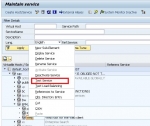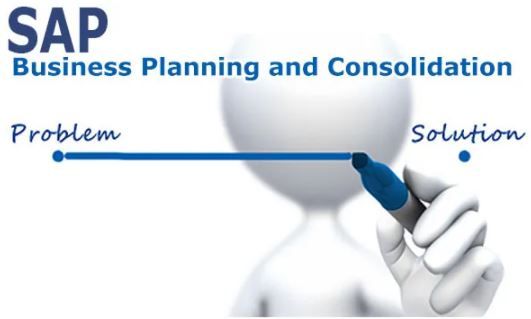SAP BPC (Business Planning and Consolidation)
SAP BPC is a part of the SAP Enterprise Performance Management software suite. This tool helps companies manage the financial and operational activities. It supports financial planning, reporting, and consolidation. Furthermore, it assists in agile budgeting and the monthly reporting process.
At present, SAP BPC has more than 6000 customers around the world. The software is flexible and offers a unique implementation for each user. SAP BPC has become very popular over the years. It is used by both small and medium-sized businesses.
In this post, we will learn all about SAP BPC. Let’s dive into the details.
What is SAP BPC?
Full form or SAP BPC stands for (Business Planning and Consolidation).
SAP BPC was developed to help companies to simplify their budget planning. They use the software to make business forecasts. Moreover, this is a highly scalable, robust, and flexible platform. This makes it suitable for different businesses. It offers companies a unified software solution. Thus, they won’t require different components to execute business functions.
Using SAP BPC, companies can maintain compliance with financial reporting rules. This software accelerates the budget closing cycles. This further helps them to align their financial goals with their business objectives.
There are two migration types in SAP BPC –
- SAP BPC NetWeaver platform
- SAP BPC Microsoft platform
So, SAP BPC can leverage the power of both Microsoft Excel and NetWeaver platforms. Furthermore, there is a version available for SAP BW/4HANA. You get real-time access to SAP BW/4HANA data. SAP BPC also allows the integration of SAP and non-SAP data.
Core Capabilities of SAP BPC
.jpg)
The key capabilities of SAP BPC are –
- Planning
- Budgeting
- Forecasting
- Consolidations
- Legal and Management Reporting & Analysis
Planning
SAP BPC allows companies to develop their business plans. The management team uses the software solution to create their vision and objectives. This includes creating weekly, monthly yearly, and quarter-yearly plans. Some companies use the software to create long term plans.
Strategic planning helps companies to answer the following questions –
- What are the company’s current financial goals?
- What needs to be done to achieve these goals?
- How much time is required to achieve business and financial objectives?
- What are the organizational drawbacks?
Overall, SAP BPC provides a platform to integrate business operations and financial processes.
Budgeting
Using SAP BPC, you can create a yearly budget for your company. This budget may be based on the business calendar. Budgeting will also help in gauging the company’s financial performance.
SAP BPC offers useful features such as scenario planning and what-if modeling. These help organizations in analyzing whether their budget is aligned with business requirements. The software also helps in building forecasting models. This lets you update and adjust forecast models as per your business objectives.
Forecasting
Forecasting is performed to predict the future outcomes of a business. For this, SAP BPC offers forecasting models. This further helps in analyzing the internal and external factors that have impacted the company. The forecasting models also assist in decision making and risk management.
SAP BPC combines the forecast periods and actual periods into one category. This makes reporting and analysis more efficient. Based on this analysis, the different forecast periods can be studied. SAP BPC forecasting facilitates the development of better business strategies.
Consolidations
SAP BPC has capabilities for legal and management consolidation. Users can integrate data from a variety of sources for consolidation. Furthermore, SAP BPC also offers SAP HANA data consolidation in real-time. While consolidating, SAP BPC also supports non-SAP ERP software systems. The other consolidation features of SAP BPC include –
- Currency conversion
- Journal entries
- Inter-company eliminations
- Equity pick-up
- Partial ownership
- It lets you create reports such as cash flow statements and balance sheets
Legal and Management Reporting & Analysis for both Operations and Finance
SAP BPC offers many reporting formats. These include real-time modeling and what-if scenarios. It uses the power of MS Excel to fetch data and write it to the database. This data can be multidimensional. But SAP BPC can handle it using in-built templates. Furthermore, using this data, users can create financial statements, production reports, and ad-hoc reports.
Another useful feature offered by SAP BPC is a book publishing wizard. This lets users combine data from cost centers, product lines, and profit books. Users can convert this data into a distributable PDF document.
There is a Disclosure Management solution that automates the filling of different regulatory departments.
SAP BPC Versions
The different versions of SAP BPC are –
- SAP BPC for Microsoft
- SAP BPC for NetWeaver/BW
- SAP BPC Optimized (on S4/Finance) / Group Reporting
SAP BPC for Microsoft
The SAP BPC Microsoft version is currently under maintenance. No new developments for this version have been observed. However, developers may release new updates and service packs. These updates will fix issues in other software such as MS Office. The proper launch of this version may happen by the end of December 2022.
SAP BPC for NetWeaver/BW
The SAP BPC 10.1 version for SAP NetWeaver is very powerful. This version combines the benefits of SAP HANA, BPC, and BW Integrated Planning. This version utilizes the HANA in-memory database. This makes data handling faster. Moreover, the version also has a front-end portal. This lets users connect to the SAP Analytics Cloud which facilitates hybrid planning.
The SAP BPC NetWeaver version has two models – Standard and Embedded. The Embedded model needs data modeling in SAP BW (Business Warehousing). On the other hand, in the Standard model, data modeling is performed by users in the SAP BPC front-end.
SAP BPC Optimized (on S4/Finance) / Group Reporting
This version of SAP BPC runs directly on SAP HANA. The main advantage of using this version is that it removes data replication from BPC. Due to real-time integration with the ERP layer, no ETL (Extraction, Transformation, and Load) methods are required. This means that master data can be shared easily in the integrated environment. Moreover, users can access transactional data in real-time.
The SAP BPC Optimized (on S4/Finance) version enables companies to speed up their reporting processes. This is due to the fast currency conversions and financial consolidations.
Advantages of SAP BPC
The advantages of using SAP BPC for businesses are –
- Enables employees to enhance customer relationship management. This is because they can easily handle customer data from ledgers and data warehouses.
- Makes data more accessible. This allows for better decision making.
- Offers companies a clear audit trail. This lets them easily trace data back to the sources.
- Facilitates integration between teams, departments, and different source systems
- Shortens the forecasting cycles and reporting processes. This enables companies to react faster to changing business requirements.
- It uses a shared reporting tool that can be accessed by multiple employees in real-time. This speeds up the reporting processes.
- Helps companies to meet legal and regulatory compliance demands
- Automated reporting reduce human errors and the time to resolve them
- Users can work on this platform without the assistance of IT specialists
- Allows companies to save reports offline. These reports can be viewed only through authorized access
Scope and Career Opportunities in SAP BPC Course
Candidates having a certification in SAP BPC will have an edge over others. He or she will know SAP BPC installation, managing its tools, and sub-modules. As the software is in huge demand by users, project managers, and consultants, this will open doors to many employment opportunities.
The average salary of an SAP BPC consultant is ₹1,124K / year. This salary starts at 500 K and can go up to 4000 K per year. Isn’t that lucrative? Plus you get to work at the best companies in the world including –
- SAP
- TCS
- IBM
- PwC
- Reliance Industries
- Accenture
- Ernst and Young
Become a Certified SAP BPC Consultant
To be an SAP BPC Consultant, you need the SAP Certified Application Associate - SAP Business Planning and Consolidation 10.1 and 11.0 certification. This verifies your knowledge about planning, consolidation, and implementation of best practices in a business setting. The exam has a duration of 180 minutes. It has 80 questions in total. This exam is available in English and Japanese.
An SAP BPC Consultant or Application Associate has sound knowledge about different Microsoft platforms. Understanding of business planning and implementation of planning techniques is also required.
Conclusion
SAP BPC helps companies to react to this ever-changing business environment. It simplifies monthly reporting, consolidation, and planning processes. And for the employees, it can pave way for many job positions besides SAP BPC Consultants. These include SAP BPC Package Consultant, SAP BPC Functional Consultant, and Business Technology Analyst.
SAP BPC Other Important Resource
Tutorials
 Web Login Link to Web Interface of BPC
Web Login Link to Web Interface of BPC
How can Customer identify Web Logon Link of BPC?Customer is confusing with /sap/bpc/web and /sap/epm/bpc/web when logging to web interface of BPC.Solution: For BPC NW 10.0, SICF /default_host/sap/EPM_ ... RUN_LOGIC: Error Obtaining Concurrency lock (foreign_lock)
RUN_LOGIC: Error Obtaining Concurrency lock (foreign_lock)
We are getting an error: "RUN_LOGIC: Error obtaining concurrency lock (foreign_lock)" in the formula log after submitting several data manager packages jobs running the same script file with ...- SAP BPC (Business Planning and Consolidation) Certification Cost and Course Duration in India
SAP BPC (Business Planning and Consolidation) CourseAspirants can enhance their skills related to the modules of SAP business enterprise solutions by understanding and absorbing the different levels o ... - Upgrading SBOP PC 10.x for NW System to NW 7.50.
Upgrading software components POASBC, CPMBC or HANABPC to NW 7.50 stackAdvantage of Upgradation:Due to the relocation of two Software Components CPMBC and HANABPC to the Software Component SAP_BW ... - Change BPC installation User's Password
How to change BPC installation User's Password?SOLUTIONWhile installation of Planning and Consolidation server the installing user provides service IDs and passwords. Then the system uses the IDs ... - Create client log files
How to create the client log files?SOLUTIONPlease follow the steps below in order to create client log files: First Click Start > Run and then input 'regedit' in Open and click 'OK' ...  Find BPC Server URL
Find BPC Server URL
How to Find BPC 10 Web Page URL Address?Please follow the steps below in order find out BPC 10 Web Page URL Address: First in NetWeaver navigate to T-code SICF. Now type 'SERVICE' in the ' ...- Usage of CDPOS and CDHDR Tables in SAP
What is CDPOS? CDPOS is a standard Change Documents Transparent Table in the SAP BC application. This SAP table stores Change document items data. A SAP user can use the t-code SE16 ...
